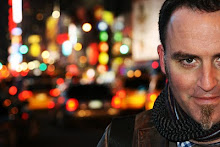This afternoon I met an incredibly charming women. Her name is Sharon, she's from Romford and I was interviewing her as part of the Invisible Voices project. Sharon's story is simple. Her 24-year old son son is autistic and gay. He knows he's gay. She knows he's gay, but the authorities won't acknowledge the fact. And therein lies a hopeless problem, which triggers an important debate fuelled by a simple question: Does a person have a right to sexual intimacy?
Sharon's son is very lonely, and he tells this fact to anyone who'll listen on any manner of online chat rooms. But in the process he's putting himself at terrible risk...
In the past he's been attacked, chased and beaten up in local parks and subjected to brutal online bullying which led to his being sectioned at the age of 18.
If he gets chatting to a man online, who shows even the remotest interest, he'll more often than not immediately change his Facebook status to "engaged" because he doesn't understand the intricacies of social convention. This terrifies people. Others take advantage of his trusting nature.
Sharon, of course, longs for him to be happy. She longs for all the things that any mother would long for; the top of the list being for him to have "someone to cuddle at night." She knows the situation is hopeless, however. Who could love her son despite his problems? And if there's a man out there who might, where would she find him? In the meantime, does she acknowledge his right to sexual gratification, even though this has got him into terrible trouble in the past?
Could or should these uncomfortable questions ever be answered? In Holland they have special sex workers who deal with these situations, but Sharon worries that this would give her son an insatiable appetite for something which he'd ultimately not be able to control. There used to be an online, very carefully monitored and chaperoned, dating service for gay people with special needs, but the funding was, as ever, pulled, and besides, Sharon's son doesn't perceive himself as being different to the majority of people. Lumping all sorts of random mental and physical health issues together under the single umbrella of "special needs" leads to particular confusion and distress with autistic people because they can't understand why they're in any way the same as people with more obvious physical disabilities. In fact, they are often repulsed or frightened by what they see.
With so many issues in life, there's a clear black and white answer which a bit of common sense or government investment would yield. In this issue, I find myself stumped...
The only thing that strikes me is that it's a very real problem which needs to be examined and addressed by people with open minds and a desire to protect the needs and safety of young people who, through no fault of their own, don't quite adhere to conventional behavioural models. I don't even know who to lobby about this, but feel I must...
Tuesday, 6 May 2014
Subscribe to:
Post Comments (Atom)

I've come over via Tim. You could try to get help for Sharon's son at the Pyramid Educational Consultancy. My ex's sister is a consultant there and I know they have a great track record of helping people. Here's a link to a lady who may be able to help, she deals with adults as well as children. Best of luck. http://www.actcommunity.ca/profiles/261/
ReplyDelete